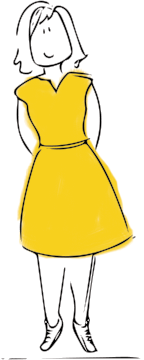Hello. This is Kate.
I am a social design researcher.
I am drawn to design as a collaborative and participatory creative practice. I am passionate about learning from and working with people. Being a design researcher has been a journey of learning and practicing how to be with people and the world around us in supportive, generative, safe and creative ways. This work has meant an ongoing process of developing deeper awareness of identity, power, humility and equity.
In 2023 I completed a PhD research about how practitioners from dominant positionalities and worldviews can account for the role of domination in collaboration across diverse worldviews and communities.
In my earlier work, I focused on designing opportunities for engagement and awareness like this, this, and this.


